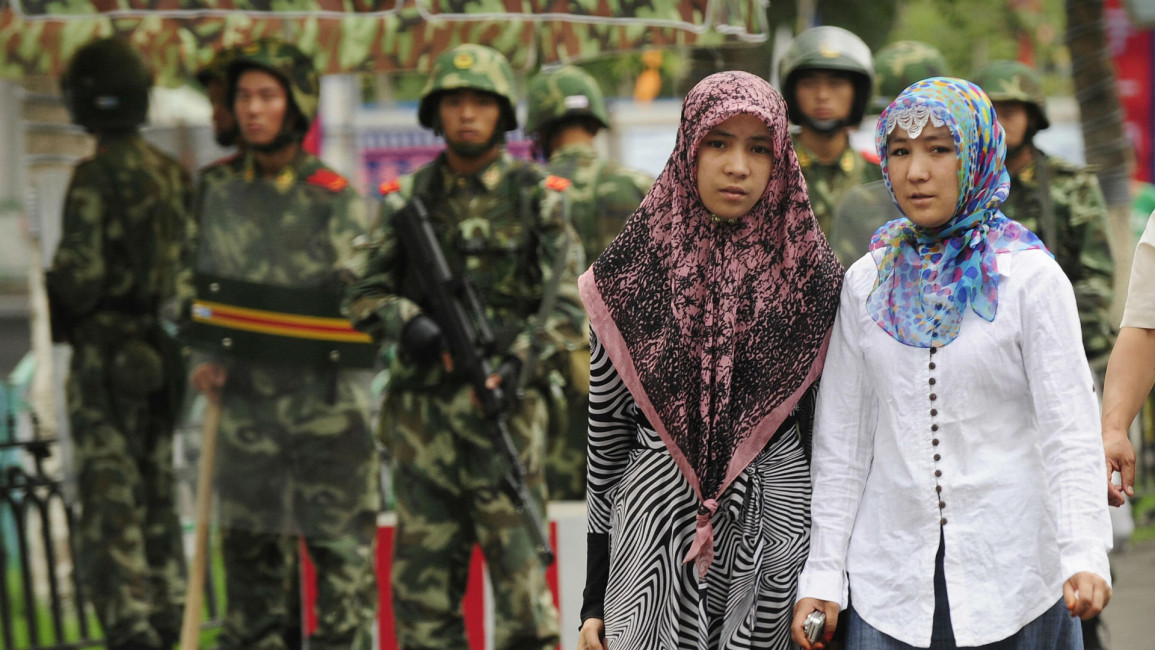
After name ban, China arrests Muslim for 'tweeting Quran'
The 26-year-old woman from the Muslim-majority Uighur ethnic group was detained in the city of Korla this week on charges of spreading "extremist religious thought", Radio Free Asia reported.
"There is extremist religious content that you're not allowed to repost, and she reposted it; she reposted that kind of thing many times," an employee at a government-backed extremism watchdog told the media outlet.
They added that posting quotations from the Quran or about God was "against the law".
The far-western region is the homeland of the Uighurs - a Turkic-speaking group, many of whom complain of cultural and religious repression and discrimination - and is often hit by deadly unrest.
Last month, Chinese authorities released a list of dozens of banned baby names as part of a crackdown on "extremism".
The banned names include Islam, Quran, Jihad, Hajj, Mecca and Medina – although a full list has not yet been published.
Earlier this year, authorities in Xinjiang announced a ban on beards and burqas, saying growing "abnormal" facial hair or wearing robes that cover the whole body and face were now prohibited.
Human Rights Watch has slammed the measures as oppressive.
"This is just the latest in a slew of new regulations restricting religious freedom in the name of countering 'religious extremism'," Sophie Richardson, China director at HRW, said in a statement.
"These policies are blatant violations of domestic and international protections on the rights to freedom of belief and expression.
"If the government is serious about bringing stability and harmony to the region as it claims, it should roll back - not double down on - repressive policies."
Beijing regularly accuses what it calls exiled Uighur separatist groups such as the East Turkestan Islamic Movement of orchestrating attacks in the vast, resource-rich region.




